Matmos Interview Part 2 of 3 (w/ Drew, Martin)
 I had originally intended to post this interview in two halves, but I am now opting to post it in thirds. So, here is the second segment.
I had originally intended to post this interview in two halves, but I am now opting to post it in thirds. So, here is the second segment.
At this point in the interview my mini disc recorder failed, and the rest was taped on a cassette over a recording of Martin destroying his father’s speakers…just thought you’d like to know.
For a refresher course, see Part 1 of 3.
–Bez
AS-How did Matmos form?
Drew- Well, we became a couple and a band in the same sort of process. I had seen Martin’s band at a punk rock warehouse on Gilman Street, and he had seen me perform solo doing noisy cut-ups of lounge music with a sampler.
Martin- No. You were doing techno.
Drew- It was all lounge samples. We met in a gay bar where I was a go-go dancer. Martin was putting money in my g-string. This was at Club Uranus. Pretty soon he was teaching me how to edit sound on a computer, which was very rare to do at that point. I was going out with somebody else then, but our partnership kicked off and the other relationship died out in the space of about a year. Pretty soon I was moving in with Martin. We were living in the Tenderloin, a really rough part of San Francisco. But in a lot of ways it was cheap and beautiful and weird. We just spent hours making endless repetitive looping music that was sometimes trying to fit in with techno, and sometimes just trying to see what our software could do. I was learning a lot. Martin really taught me how to sequence, and how to edit audio. I had just fucked around with tape recorders and samplers.
Martin- Well he was super, super good with his keyboard sampler. I had one for years, but I had never dedicated the time and the obsession to the one thing. Like when I met him, when he was 19, he was a fucking master of this one sampler. I wonder about the specific machine, it was a Roland W30. The sampler I had gotten was a Sonic Mirage, which literally had its readout in hexadecimal. So, everything was expressed in two digits. So the recording levels, and every other thing that you knew about what you were doing…who had to read hexadecimal to do anything with it. Which was hard for never-strong-in-math Martin.
Drew- Yea, I benefited from newer consumer electronics. The Roland W30… MC Hammer used it, a lot of the people that did jungle used it. At that time I was listening to a lot of drum and bass, and early techno, and acid techno. My background is really noise and electronic music and industrial music. But the sort of language was changing to rapidly in music at that time. That was really cool for me. Now we kind of laugh at rave and techno and certain cheesy 90’s things like Burning Man.
Martin- Everyone laughed at what came just previous.
Drew- It’s an era that when we look back at it we think of big, bad floppy hats and cheesy chart techno.
Martin- The Chemical Brothers, ecstasy.
Drew- But if you went to a gabber party, like I djed at one called Technical Support in England. We went to one together that was with that industrial strength dj Lenny D. You heard stuff that was so crunched out, and distorted, and fast, and strange, that to me in really felt like a new way for noise music to develop. Like it wasn’t about any of the older musical values what so ever. It really seemed pretty amazing…formally fucked up, and full of implications.
So, the unfortunate thing that happened evolutionarily is that IDM turned into this brackish delta of people drawing on, but de-saturating and whimpifying something that had a kind of integrity. Part of that was about “is this for the dance floor or not?” and a lot of doubletalk about whether people were making records for one setting or another. I don’t think that home listening or rave listening are inherently good or bad. It’s about how you work inside your form. But a lot of what was cool and fucked up was happening at raves and parties. It’s not that case that listening to something at home necessarily makes it deeper, more complex, or more formally brave….But nobody even cares about IDM now.
Martin- It was a seriously unfortunate moniker. We proposed again, and again in the 90s that we change it from Intelligent Dance Music, and start calling it Super Music. How many nicknames for music include praise in the title? You know it’s not called Profound Blues; it’s just called Blues. It’s not called Fabulous Rock Music.
Drew- Maybe it should be Fabulous Rock Music for bands like Roxy Music, Queen, T. Rex.
Martin- But not Deep Purple, or Black Oak Arkansas
Drew- No. They are not fabulous.
AS-What is the compositional process like for Matmos now, and how does it compare to the past?
Martin- When we started out, like Drew was saying, we wanted to make noise music. Then Drew introduced me to this stuff called techno, and, I’m going to short handed it, rave. He had a great interest in making stuff that worked for the dance floor. We tried making both separately, and kind of failed…I don’t know, we liked it.
Drew- But nobody else did.
Martin- And we kind of came to the conclusion that no one gives a shit about what we do, but we enjoy doing it. So, we did it for our own pleasure. We started combining the two, and making really noisy…what we considered dance music combining the idea of taking really weird recordings and cutting them up to be rhythmic.
Drew- So there would still be bass lines and beats, but they would be made out of the raw material that could be noise music.
Martin- And what do you know? That is still what we do. That went well.
Drew- I think the way that the compositional process has changed is that just over time you get more self-conscience and more paranoid about not repeating yourself, and you also develop a deeper relationship with your gear and what it can do. Software changes, the environment you’re responding to changes. So, for us it is now freer in certain ways, because I feel that I have a little more under my belt now when I’m trying to think about the form of a song. But it’s constraining in other ways, because the more times you have made a record, the greater the suspense about whether you still have something to express that’s worth taking up people’s time and money.
Martin- I don’t know. I just don’t think about it
Drew- You’re freer in some way. And that’s not something you see going into it. We never thought that anyone would care. We pressed ourselves. We put out our records… we made a thousand, and we thought that they would just sit in boxes in our basement and that would be that. And instead there was this weird charmed life that kind of snuck up on us. We didn’t see it coming, and that is still kind of hard to believe. We would sit and listen to Terry Riley, and the idea then, that 10 years later we would play in an ensemble with him. And actually not just meet him but sit and make music together a little bit, was just unthinkable. And it is still shocking.
I guess Martin is right though, because in a certain sense nothing has changed, because you still start from a blank slate and try to figure out what you have to say. It doesn’t get any easier to make interesting music; it does get easier to make something, you know what I mean?
Martin- No…but I don’t want to give you a hard time.
Drew- After eight albums I know how to take a field recording and chop it up, lay it out on the keyboard…
Martin- Oh, you mean you know how to do what you’ve done before, exactly.
Drew- Yea. I know how to repeat myself, and that gets easier. But what you don’t learn is how to make a good song, because that is infinite and endless. And that task of making something worth someone’s time is never a given.
Martin- You ever bowl?
AS- Yes. I have, but around here we do duckpin bowling.
Martin- I’m sorry for you. In bowling, at least in my experience—there was a time in my life when I bowled a lot. When you bowl six games in a row, by the sixth game it’s still very difficult to throw a strike, but it gets easier and easier to pick up spares. Because picking up spares is about throwing the ball into this place. Like I can always put the ball into the upper-right hand corner of the thing.
But a strike requires this perfect placement, not just placement, speed, torque. It has to have spin and be coming in from this…it’s a whole different thing from picking up spares. Picking up spares is a dumb activity. I think that is a good analogy for it. By your sixth record is easier because you’ve practiced and done all the stuff, it’s easier to pick up spares. But throwing a strike is still the real art form. Boy, sports analogies, that’s what we need more of.
Drew- But there is a poet that was saying that to really write a great poem is a little like getting struck by lightening. You can practice by standing out in the rain in a big empty field, but you won’t necessarily get that lightening.
AS- Do you know what poet that was?
Drew- I don’t want to misattribute. I’ll look it up, but I thought it was Randall Jarrell.
Martin- Oh, you like that better than my bowling analogy?
AS- That was the best bowling analogy I have ever heard, and I’m sure it will go down in history as the best bowling reference ever.
Drew- I think it was Randall Jarrell, but let me check so that I don’t get it wrong. That kind of luck you can’t script, and you just sort of hope to be receptive to…
Martin- Which, incidentally, I’m not saying, “We throw strikes.” I’m not saying “And we figured it out.”
Drew- It’s the difference between having technique and inspiration. For us that is even harder to quantify because I don’t really feel like our music is expressive, in the way that I don’t view Matmos as the way I manifest my emotions. That is totally different from a singer/song writer model in a certain way. For us we propose a concept, and then we come up with a list of objects, we acquire those objects, we try to see what sounds they make, and then we try to see what songs remerge from those sounds.
But at no point is it like “Oh, I’m angry, so I’m going to make an angry song,” or “I’m feeling really positive, so I’m going to make a positive song.” It isn’t emotional in that way, it’s about what the sound it doing. So it’s not about inspiration, in that direct manner. Though you can have work flows when the material feels very responsive, and you’re getting the result you’re really happy with. I mean people hear Blood on the Track and they’re like “It’s the divorce album,” and they hear the divorce through the lyrics. Obviously that is an allusion because it is still art, it’s still been edited. But usually with Matmos…our baggage is different. It’s not that we don’t have baggage, but our baggage is often some anachronistic weird historical scheme, or some biographical list of some famous people’s lives, or…
Martin- It’s not about loneliness.
Drew- It’s not emo. But hopefully it’s not this dry white cube of abstraction either, because it is always referential…tied to objects. And that’s what’s scary about the new album. The new album is us finally even giving up on that, and just starting from a total blank slate of electronics and seeing what emerges. For a long time I think that if people wanted to, you know, kick the tires of what Matmos is doing, they could say “Oh well you’re really just putting together this list of signifiers, and the music is secondary. It’s really about ideas, and you’re coasting on the fact you sound interesting as a press kit.”
Martin- Which is important.
Drew- Or “There is blood and semen. Ha ha!” You know, that like your going at it in this scatological, IDM fart joke level. Which, if it’s funny why not.
Martin- Alright, enough. Let’s get to the next one.
AS- For Matmos is the emphasis placed on the process, or on the end sound?
Martin- What do you mean by “process”?
AS- The source of the sound, and process creating the sound.
Martin- I like that we have, at least historically, have had listeners….well when you face the reality, some of them are going to know and some of them aren’t. Some of them are going to be the kind of people that investigate. I have always enjoyed the fact that we tried to provide more information for those that want more information.
Drew- But it’s not mandatory.
Martin- But hopefully it’s not necessary to enjoy it. Someone listening to the radio and one of our songs comes on, hopefully they can still derive some pleasure from it, and maybe some of the meaning…or maybe content would be a better word than meaning. But the person who purchases the cd can read the liner notes, the person who purchased the cd reads the liner notes and looks us up online, and can get even more, and so on and so on. Whereas I kind of feel there is a dead end…well the dead end comes sooner with a lot of music. We’re so librarian-y, also teacher-y…teacheresque?
Drew- Pedagogical?
Martin- Well that makes it seem…
Drew- Pedantic?
Martin- I like that what we do connects to a bunch of things, and those things connect to other things. And some of those things are curated by us, and some of them, of course, are going to accidental things. People frequently come up to us and say “Oh the — connects to the —-.” I’m like “ No, that actually wasn’t my intent, or our intent, but if it leads you off in the directions that’s fine.”
Drew- We get pigeonholed as control freaks who want people to have studied a syllabus to get an album. That’s definitely not the intention. I want to produce curiosity about the sounds. I would hope that if you hear the song, it would make you listen and sort of cock your head to try to figure out what those sounds are. Hopefully the imaginative response goes beyond my little wish list. Hopefully it’s richer than that. It’s not like it’s a game of guess-what’s-in-my-pocket. Is the meaning of the cake the recipe that made it, or is the meaning of the cake the set of feelings that you have when you eat it?
Martin- it’s a primary joy in life, that sort of that process of educating your self. I like connecting things to other things. I like…you remember, I guess this isn’t a popular thing anymore. In the 80s they buried this bejeweled rabbit somewhere in England. And they published this book of collages, or paintings that were clues to where the rabbit was buried. It became this international mystery, where you had interpret this Old Celtic language and art in order to find clues that led to other clues, and so on. And that had a very concrete objective—you get the $10,000 rabbit at the end. But I like the sort of treasure hunt aspect.
Drew- And it’s more about the desire and the wondering, than about the thing at the end of the process. I had that book as a kid and I thought it was great, and I never really needed to find the rabbit. There are certainly details in our music that we don’t include because we don’t think they are significant, or we don’t feel like shutting down what a piece means. I mean it’s so long ago that it’s fine to talk about, but on our first album there was a piece that had recordings of trains. We identified it in the liners notes as “Polish trains,” but they were actually the trains that went to Auschwitz. I felt that if we included that detail…
Martin- Then it makes it all about Auschwitz.
Drew- Yea, and in a way it’s just too on the nose. It’s just too limited. I like the esotericism of knowing more than the listener at certain points
Continue to Part 3 of 3 or go back to Part 1
Related posts
- Matmos Interview Part 3 of 3 (w/ Drew, Martin)In this, the final installment of the Matmos interview, Martin...
- Interview: Matmos (w/ Drew Daniel, Martin Schmidt)A couple Tuesdays ago, I got a chance to talk...
- Countdown to Whartscape: All systems go! Last minute mini-terview w/ Dr. Drew Daniel (Matmos)1. Describe your feelings on Wham City and what it...
- Interview: Medeski Martin & Wood – Unconscious Musicians (w/ John Medeski, Billy Martin, Chris Wood)Aural States sat down with Medeski Martin & Wood while...
- Interview: Drew Pompa (Blank Artists, Detroit)I saw the Blank Artists tour back in August at...





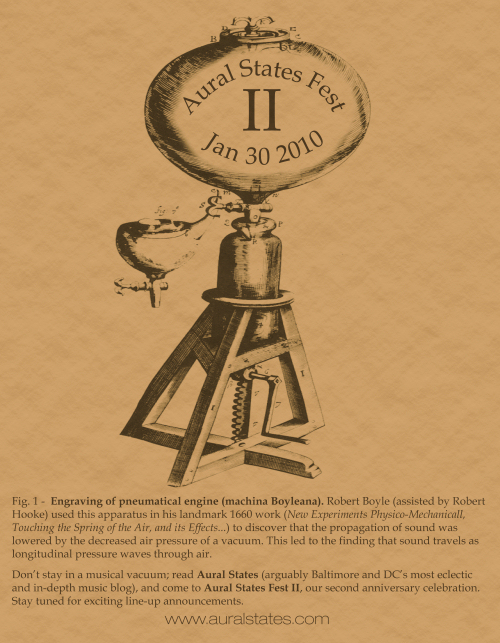
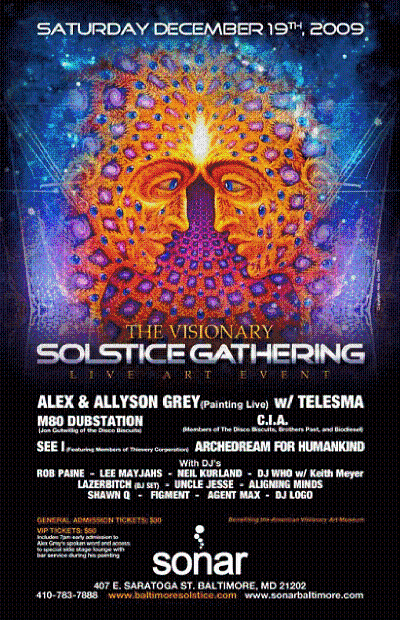









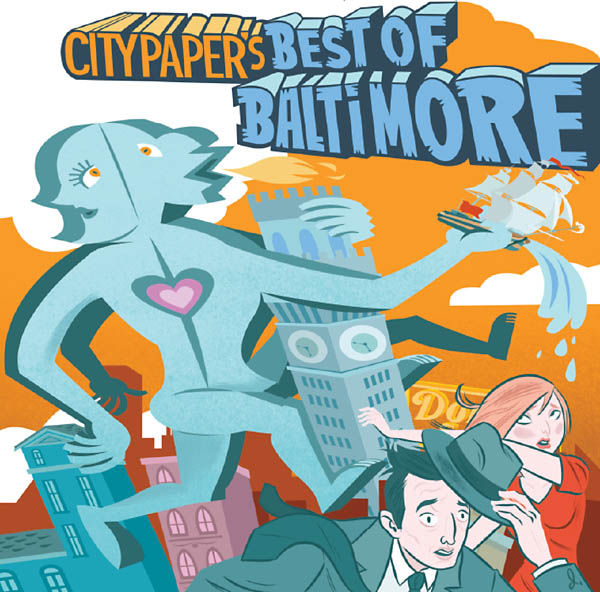
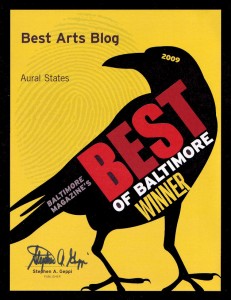


 Double Dagger: Masks EP
Double Dagger: Masks EP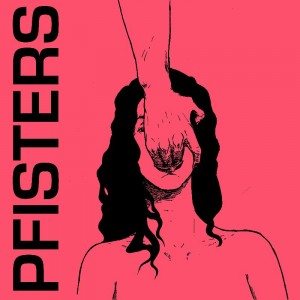 Pfisters: Narcicity
Pfisters: Narcicity Lizz King: All Songs Go To Heaven
Lizz King: All Songs Go To Heaven Imperial China: Phosphenes
Imperial China: Phosphenes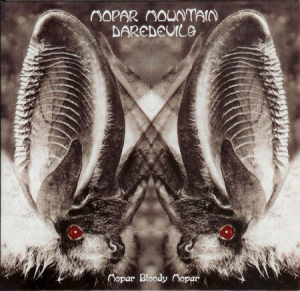 Mopar Mountain Daredevils: Mopar Bloody Mopar
Mopar Mountain Daredevils: Mopar Bloody Mopar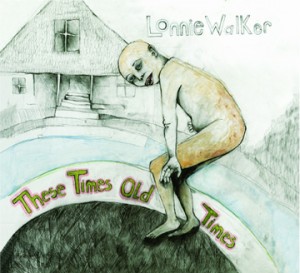 Lonnie Walker: These Times, Old Times
Lonnie Walker: These Times, Old Times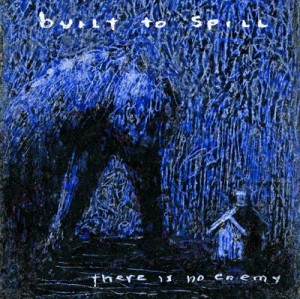 Built to Spill: There Is No Enemy
Built to Spill: There Is No Enemy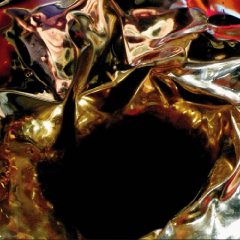 Hypnotic Brass Ensemble: Hypnotic Brass Ensemble
Hypnotic Brass Ensemble: Hypnotic Brass Ensemble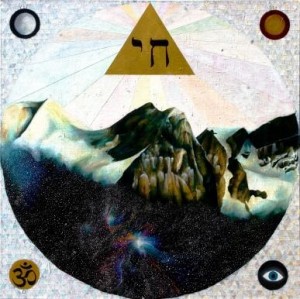 Secret Mountains: Kaddish EP
Secret Mountains: Kaddish EP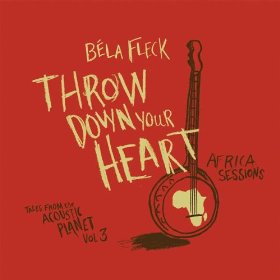 Bela Fleck: Throw Down Your Heart: Tales From the Acoustic Planet, Vol. 3 -Africa Sessions
Bela Fleck: Throw Down Your Heart: Tales From the Acoustic Planet, Vol. 3 -Africa Sessions Lands & Peoples: Lands & Peoples EP
Lands & Peoples: Lands & Peoples EP Caleb Stine: Eyes So Strong and Clean
Caleb Stine: Eyes So Strong and Clean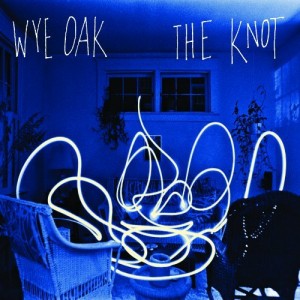 Wye Oak: The Knot
Wye Oak: The Knot Pontiak: Maker
Pontiak: Maker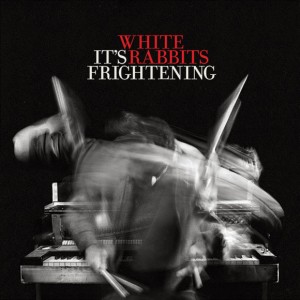 White Rabbits: It's Frightening
White Rabbits: It's Frightening Dirty Projectors: Bitte Orca
Dirty Projectors: Bitte Orca Double Dagger: More
Double Dagger: More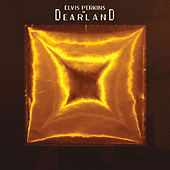 Elvis Perkins in Dearland: Elvis Perkins in Dearland
Elvis Perkins in Dearland: Elvis Perkins in Dearland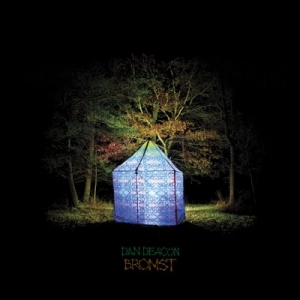 Dan Deacon: Bromst
Dan Deacon: Bromst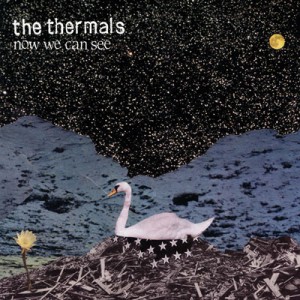 The Thermals: Now We Can See
The Thermals: Now We Can See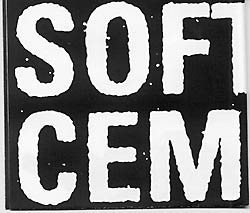 Soft Cement: Think About It EP
Soft Cement: Think About It EP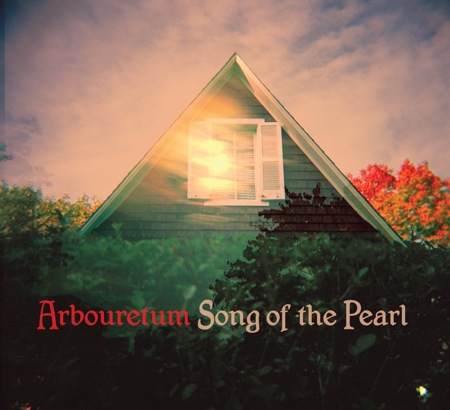 Arbouretum: Song of the Pearl
Arbouretum: Song of the Pearl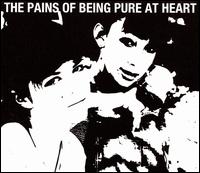 The Pains of Being Pure at Heart: The Pains of Being Pure at Heart
The Pains of Being Pure at Heart: The Pains of Being Pure at Heart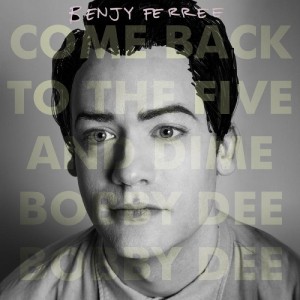 Benjy Ferree: Come Back to the Five and Dime, Bobby Dee Bobby Dee
Benjy Ferree: Come Back to the Five and Dime, Bobby Dee Bobby Dee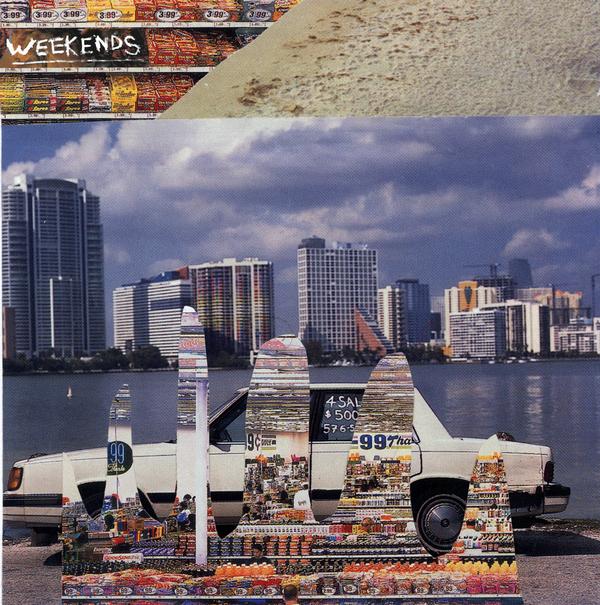 Weekends: Weekends
Weekends: Weekends Height With Friends: Baltimore Highlands 12" LP, Limited-Run Vinyl Only
Height With Friends: Baltimore Highlands 12" LP, Limited-Run Vinyl Only Caverns: Kittens! EP
Caverns: Kittens! EP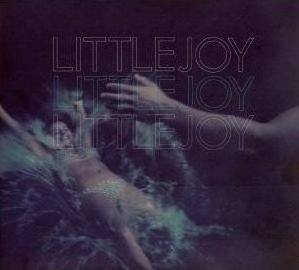 Little Joy: Little Joy
Little Joy: Little Joy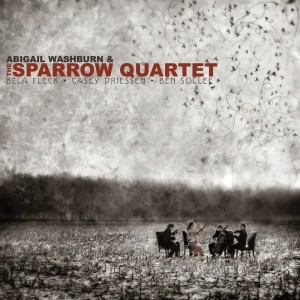 Abigail Washburn & the Sparrow Quartet:Abigail Washburn & the Sparrow Quartet
Abigail Washburn & the Sparrow Quartet:Abigail Washburn & the Sparrow Quartet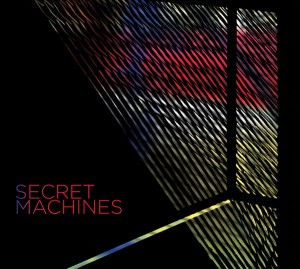 The Secret Machines: Secret Machines
The Secret Machines: Secret Machines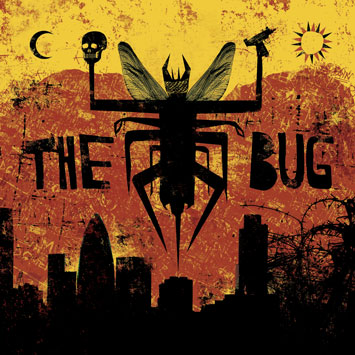 The Bug: LondonZoo
The Bug: LondonZoo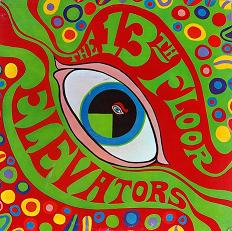 13th Floor Elevators: Psychedelic Sounds of the 13th Floor Elevators (Vinyl Mono LP only)
13th Floor Elevators: Psychedelic Sounds of the 13th Floor Elevators (Vinyl Mono LP only) Arbouretum/Pontiak: Kale (Vinyl LP only)
Arbouretum/Pontiak: Kale (Vinyl LP only) Small Sur: We Live in Houses Made of Wood
Small Sur: We Live in Houses Made of Wood AbeVigoda: Skeleton
AbeVigoda: Skeleton ImperialChina: Methods: EP
ImperialChina: Methods: EP
brilliant interview! look forward to reading more! i just love reading about their whole aesthetic… oh and the new album is beautiful, too
PS
the part about IDM and Black Oak Arkansas made me spit my drink on my screen!